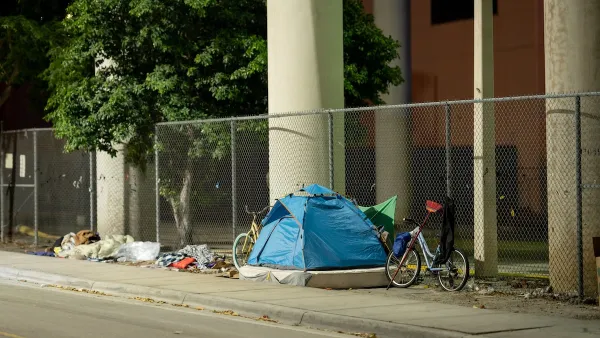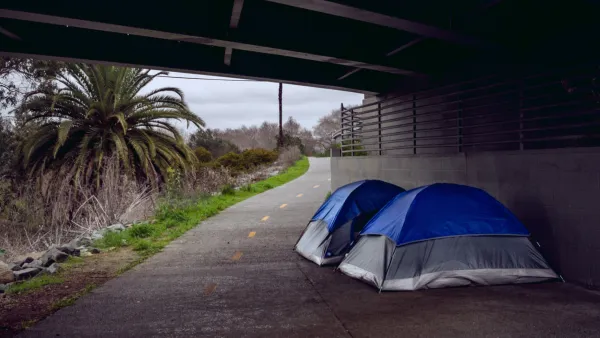Portland’s ‘aggressive’ new camping ban could threaten the city’s most stable community of unhoused people, the two-decade old, self-governing Dignity Village.

An article by Roshan Abraham in Next City describes the self-governed, city-sanctioned Portland community of Dignity Village, a village that was created more than twenty years ago in response to a growing homelessness crisis.
The article outlines the history of the village and the ways that it has remained resilient for so long. “A crucial aspect of the village model is that residents have agency, Ferry says. The spaces are voluntary; residents can leave and there are few barriers to entry. It is hard to imagine any of these approaches being replicated in the planned 6 mega encampments the city is looking to build.” According to Abraham, “Residents in Dignity Village pay $75 a month to live there and put in 10 hours a week of work on village business, which includes cleaning, maintenance and paperwork.” The village is not focused on rehousing, but provides a safe, organized space for people with few other options.
Now, the village’s future is threatened by an aggressive new anti-homelessness policy passed by the city earlier this month. “By forcing people off of the streets, the plan could mean the village, which currently has a modest waitlist of three people, could be overwhelmed with requests. It could also lead many of the city’s unsheltered population to be jailed, forced into congregate shelter or driven away from the city.”
FULL STORY: In Portland’s Self-Governed Dignity Village, The Unhoused Make Their Own Rules

National Parks Layoffs Will Cause Communities to Lose Billions
Thousands of essential park workers were laid off this week, just before the busy spring break season.

Retro-silient?: America’s First “Eco-burb,” The Woodlands Turns 50
A master-planned community north of Houston offers lessons on green infrastructure and resilient design, but falls short of its founder’s lofty affordability and walkability goals.

Delivering for America Plan Will Downgrade Mail Service in at Least 49.5 Percent of Zip Codes
Republican and Democrat lawmakers criticize the plan for its disproportionate negative impact on rural communities.

Test News Post 1
This is a summary

Test News Headline 46
Test for the image on the front page.

Balancing Bombs and Butterflies: How the National Guard Protects a Rare Species
The National Guard at Fort Indiantown Gap uses GIS technology and land management strategies to balance military training with conservation efforts, ensuring the survival of the rare eastern regal fritillary butterfly.
Urban Design for Planners 1: Software Tools
This six-course series explores essential urban design concepts using open source software and equips planners with the tools they need to participate fully in the urban design process.
Planning for Universal Design
Learn the tools for implementing Universal Design in planning regulations.
EMC Planning Group, Inc.
Planetizen
Planetizen
Mpact (formerly Rail~Volution)
Great Falls Development Authority, Inc.
HUDs Office of Policy Development and Research
NYU Wagner Graduate School of Public Service





























